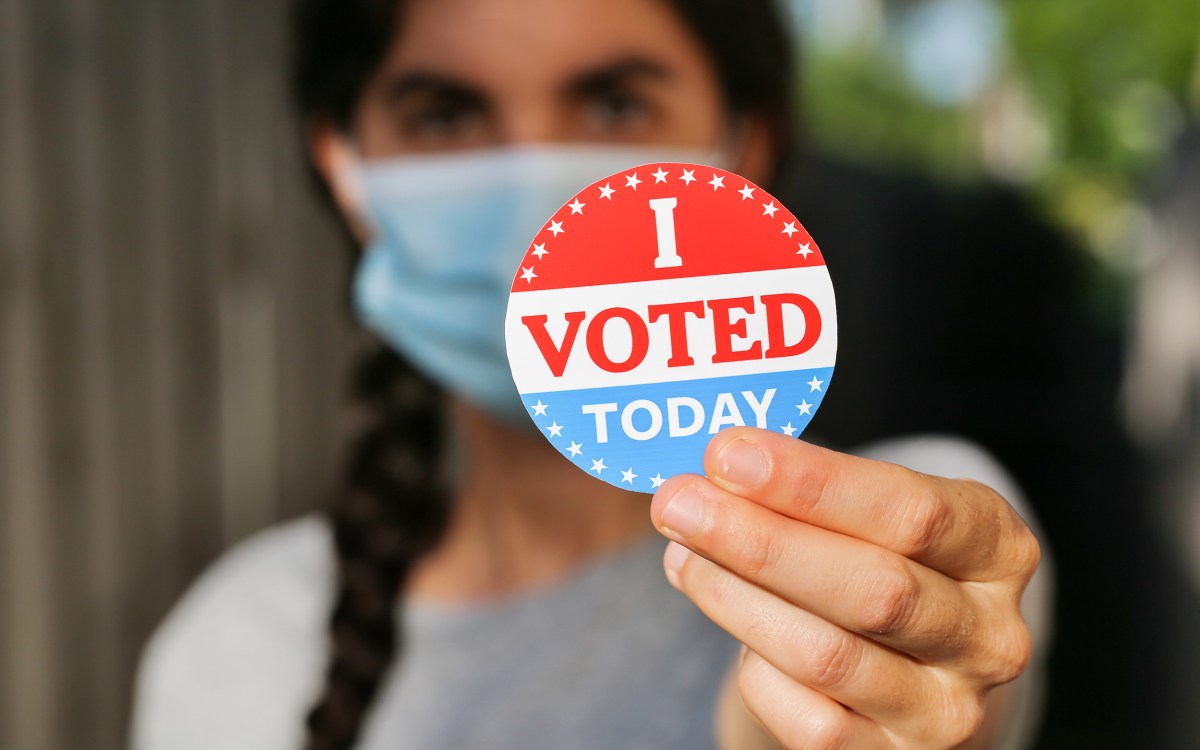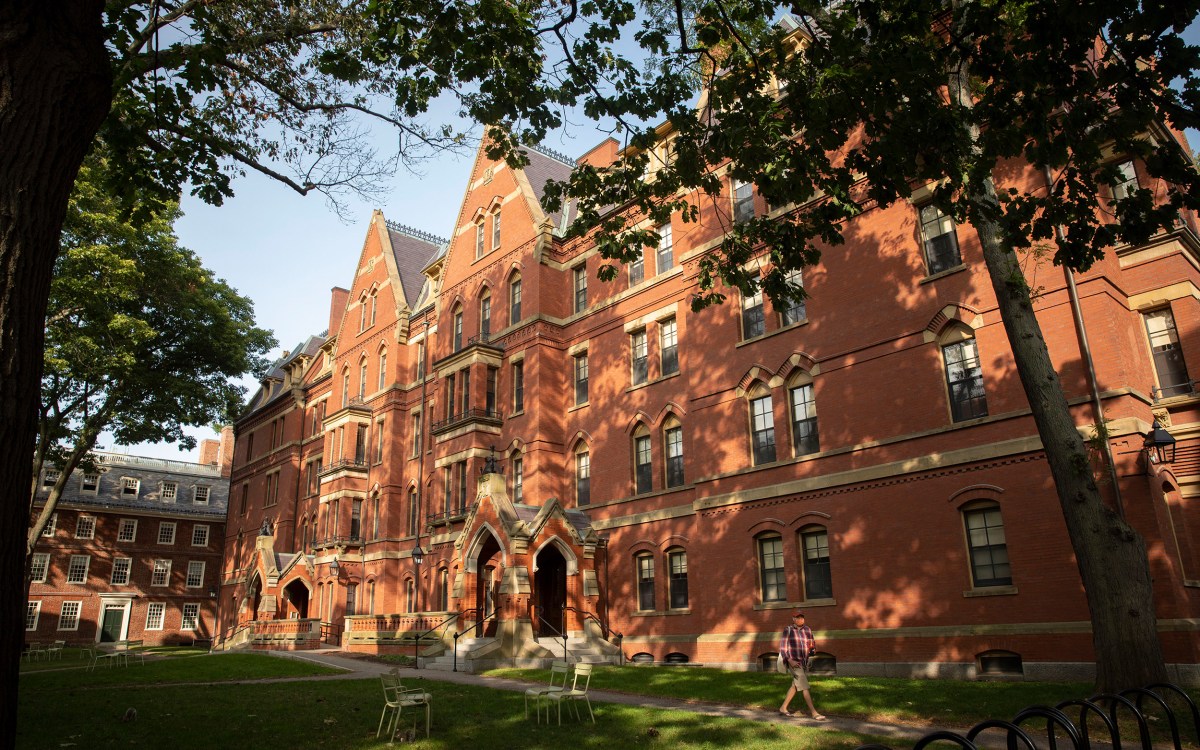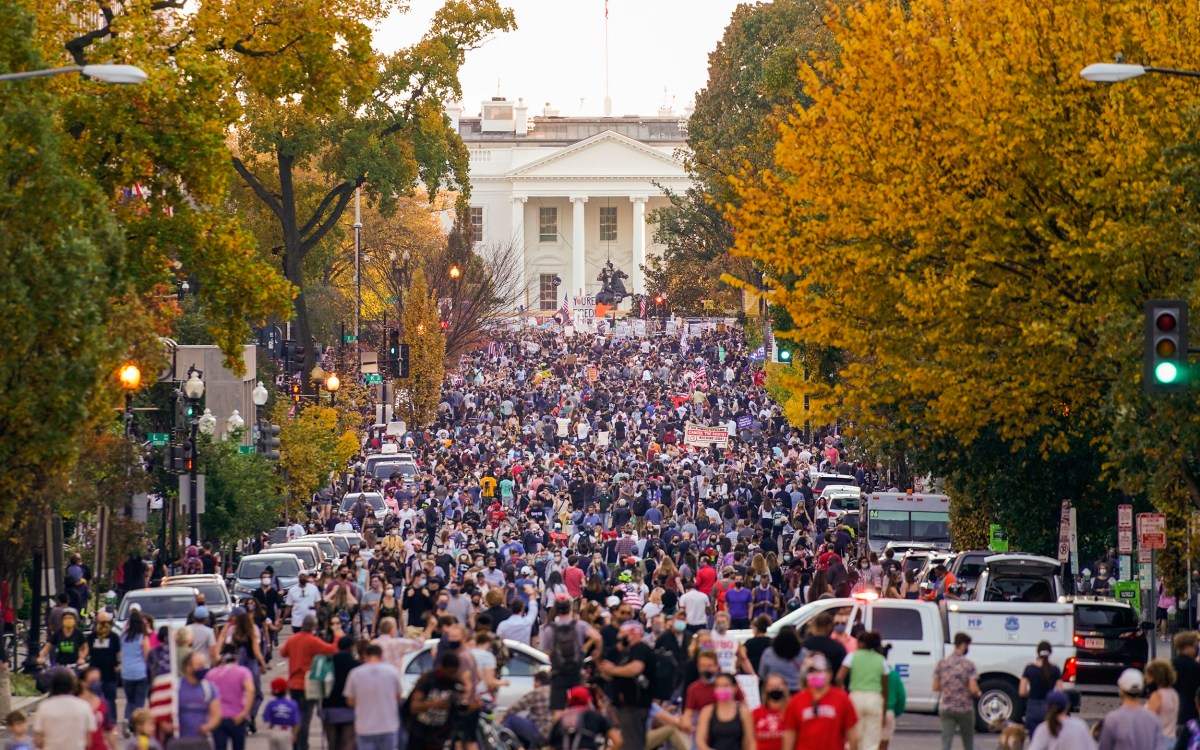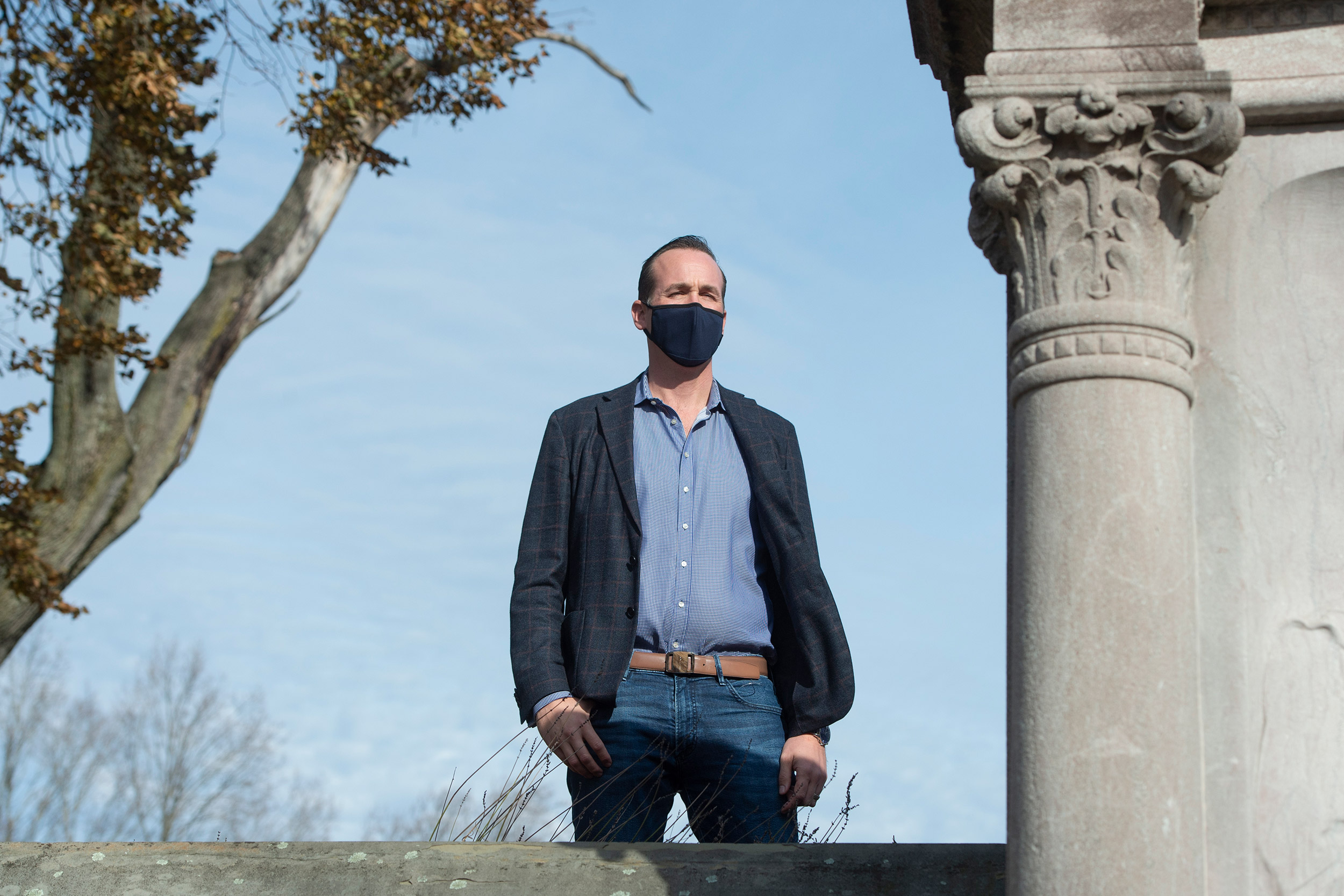
Professor of Government Ryan Enos’ course teaches students how take a deeper dive into election numbers.
Photos by Jon Chase/Harvard Staff Photographer
The election in the classroom
Students look at polling, numbers to understand the electoral system
The election is over but in some classes students have been working for months trying to use what they learned to make sense of the result, and what led to it.
Take the data-driven course on election analytics taught by Professor of Government Ryan Enos, for example. Students spent the semester studying past elections to make predictions about the outcome for 2020. They posted their forecasts on a GitHub site throughout the weeks leading to the election. The students got the winner right but the margin wrong by 39 electoral votes. In upcoming weeks, they will delve into what they got wrong.
“A forecaster must determine the most probable outcome and clearly communicate the uncertainty surrounding their prediction,” said Kayla Manning ’22, a joint concentrator in statistics and government. The course crystalized the old adage that all models are wrong, but some are useful. She said the class will examine other models to better understand what factors influence election outcomes. “Voters determine election outcomes, so other variables associated with election outcomes can reveal voters’ [true] values,” Manning said.
The course is one of several Department of Government classes this fall that have been educating students about what has been an unprecedented and bitter election. Beyond how and why elections are won, classes studied the numbers game involved in polling and votes as well as how the electoral system evolved.
In Associate Professor Jon Rogowski’s course on American presidential elections, sophomore Grant Schwartz, an economics concentrator, gained historical context to help apply fundamentals and theories, such as why particular behaviors are incentivized on campaigns and the history of absentee ballots (which goes back to the Civil War).
“It allowed me to think about issues more critically,” Schwartz said. “We talked a lot about how the electoral system is set up, the rules of the game, why the Electoral College is the way it is, which obviously gives you a lot of context into how campaigns need to win 270,” he said.
Schwartz’s classmate Jing-Jing Shen ’23 agreed.
“The American presidential election is a sustained journey,” said Shen, a chemistry and government concentrator. “From achieving the party’s nomination to meeting people where they are and mobilizing voters through strategic outreach, the road to the presidency is a long one. Nonetheless, the impacts of elections on the future of the country and our democracy can be long-lasting.”
Associate Professor Jon Rogowski teaches a course on American presidential elections.
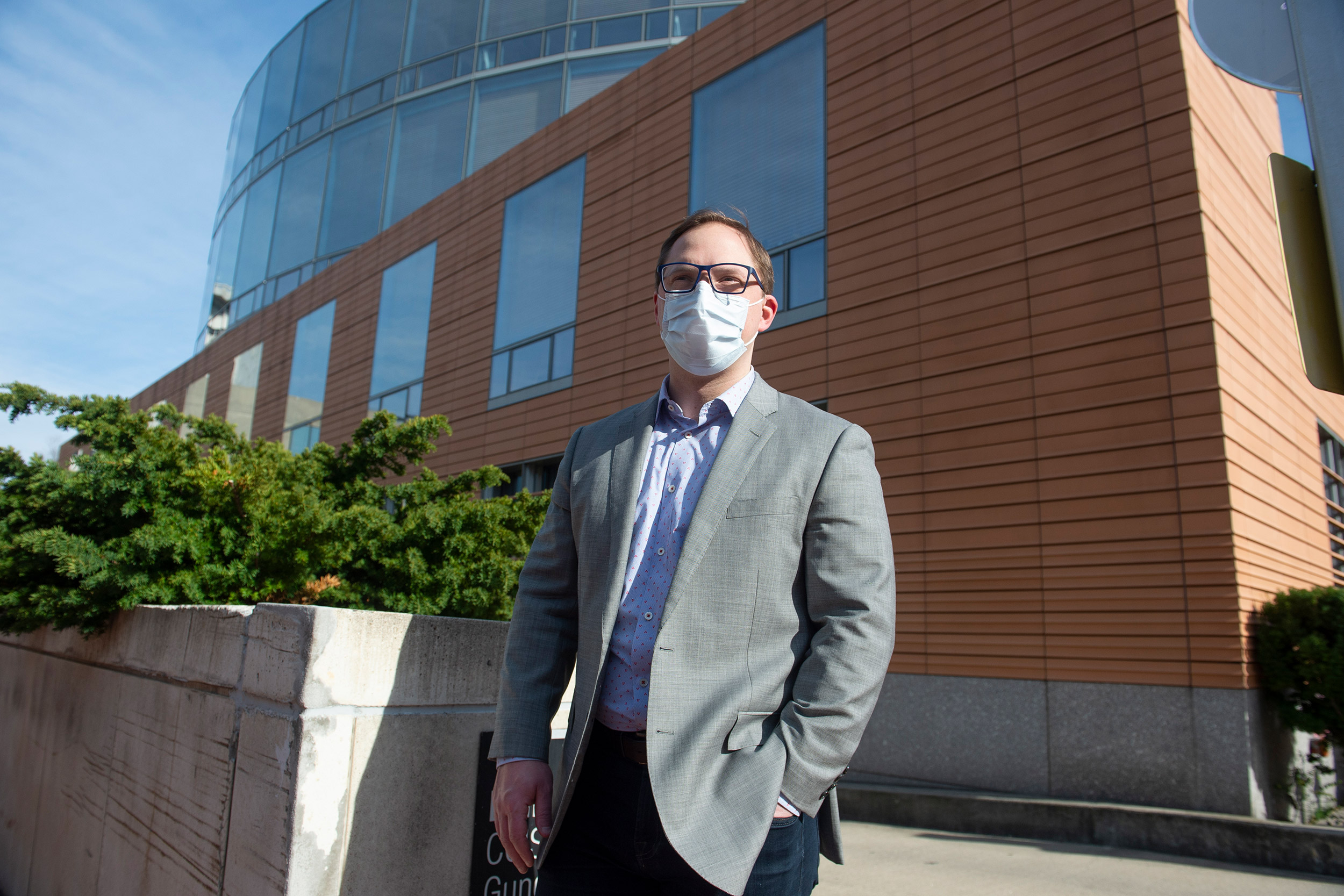
In her first-year seminar on American presidential campaigns and elections, Maxine Isaacs set up a bit of a thought experiment during the run-up to this year’s election.
The Government Department lecturer broke her class up based on who they were voting for: a group of strong supporters of Joe Biden, now the president-elect, and fervent supporters of President Trump. The groups laid out their reasons for voting the way they were to the undecided students in the class without attacking the other side.
Isaacs made clear the exercise wasn’t a debate. Instead, the undecided students reacted to what they heard, saying which positions had compelled them and which hadn’t. No one’s mind was changed or made up by the exercise, but that wasn’t the point. Isaacs just wanted them all to listen to each other with respect.
More like this
“What I’m trying to show them in those discussions is to listen, to hear out the case,” she said. “Political views come from a lot of different places and probably the least influential is somebody screaming at you that you’re an idiot because you don’t share their views. … If we could teach people to do more [listening], it would be very valuable because with the way social media works, people are constantly throwing arguments at each other. It’s all on the offense. How to have a political conversation is a very difficult thing these days, but I think it’s a teachable [skill].”
Students in these courses have also spent time understanding the stakes beyond polls and votes.
“It’s about more than numbers,” Enos said. “We want them to understand about how voters work and campaigns work and therefore how elections work, but the reason we care about those is that it really affects people’s lives. … It can literally be a matter of life or death for some people.”
That rang true for Alison Hu ’23. “It is easy and tempting to lump together individuals into broad categories like red versus blue, urban versus rural, etc., but in reality, as Professor Enos emphasizes, who constituents vote for is ultimately a personal choice based on their lived experiences,” said the applied math concentrator. “During class discussions and exercises, we often worked with state and even county-level data, which allowed us to see past the general national trends into the localized nuances important to the development of our predictions.”
Hu said it made her more aware that every vote truly matters, “which I think is an important lesson for everyone, not just students, to realize if we wish to sustain our country’s vibrant democracy,” she said.




